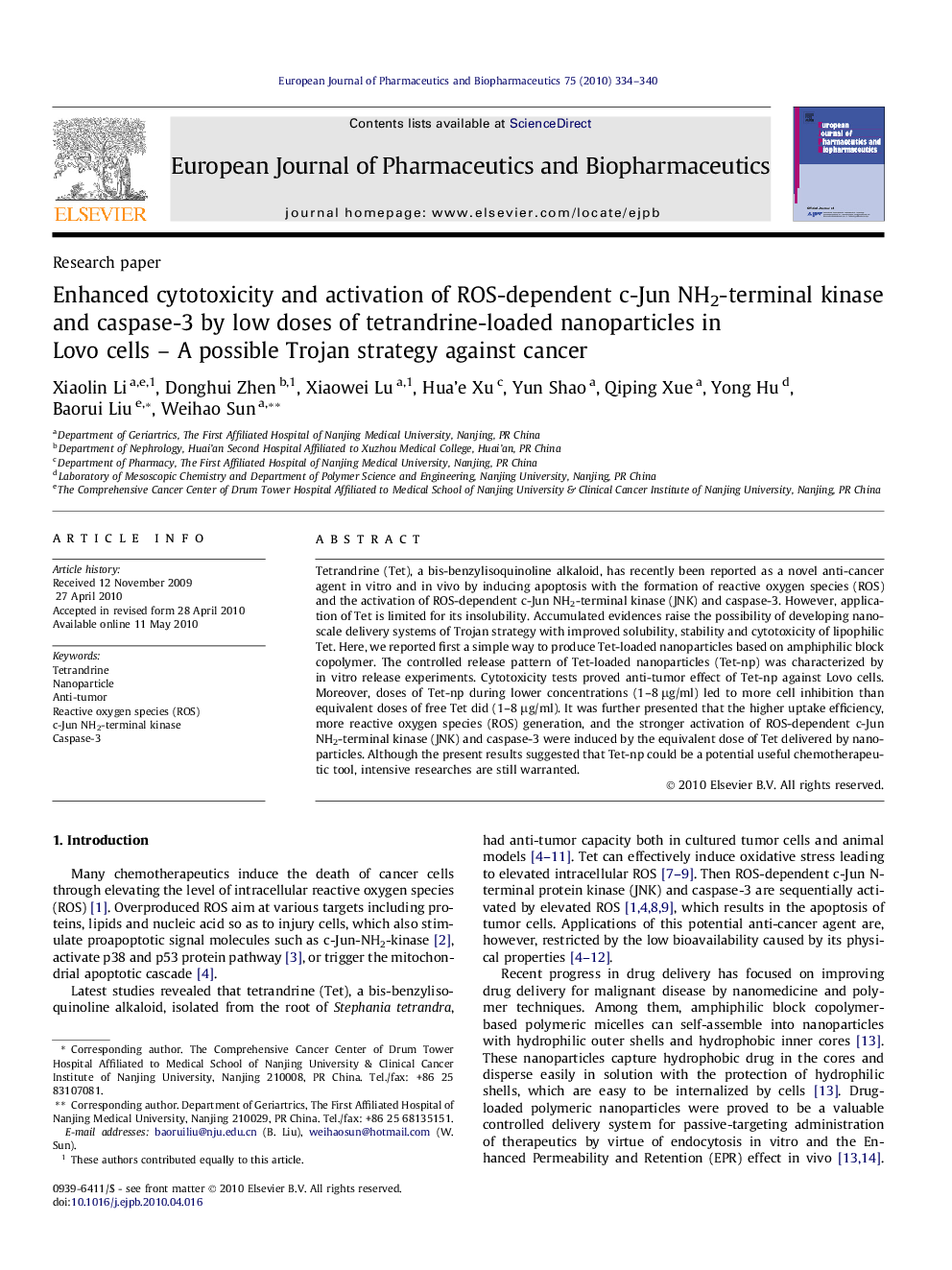| کد مقاله | کد نشریه | سال انتشار | مقاله انگلیسی | نسخه تمام متن |
|---|---|---|---|---|
| 2084447 | 1545377 | 2010 | 7 صفحه PDF | دانلود رایگان |

Tetrandrine (Tet), a bis-benzylisoquinoline alkaloid, has recently been reported as a novel anti-cancer agent in vitro and in vivo by inducing apoptosis with the formation of reactive oxygen species (ROS) and the activation of ROS-dependent c-Jun NH2-terminal kinase (JNK) and caspase-3. However, application of Tet is limited for its insolubility. Accumulated evidences raise the possibility of developing nanoscale delivery systems of Trojan strategy with improved solubility, stability and cytotoxicity of lipophilic Tet. Here, we reported first a simple way to produce Tet-loaded nanoparticles based on amphiphilic block copolymer. The controlled release pattern of Tet-loaded nanoparticles (Tet-np) was characterized by in vitro release experiments. Cytotoxicity tests proved anti-tumor effect of Tet-np against Lovo cells. Moreover, doses of Tet-np during lower concentrations (1–8 μg/ml) led to more cell inhibition than equivalent doses of free Tet did (1–8 μg/ml). It was further presented that the higher uptake efficiency, more reactive oxygen species (ROS) generation, and the stronger activation of ROS-dependent c-Jun NH2-terminal kinase (JNK) and caspase-3 were induced by the equivalent dose of Tet delivered by nanoparticles. Although the present results suggested that Tet-np could be a potential useful chemotherapeutic tool, intensive researches are still warranted.
The Trojan strategy of nanoparticle-based Tet delivery can effectively lead to higher cell death compared to equivalent dose of free Tet. The differential cytotoxicity between Tet and Tet-loaded nanoparticles may probably be mediated by the discrepancy of intracellular ROS levels and sequential activation of ROS-dependent JNK and caspase-3.Figure optionsDownload as PowerPoint slide
Journal: European Journal of Pharmaceutics and Biopharmaceutics - Volume 75, Issue 3, August 2010, Pages 334–340